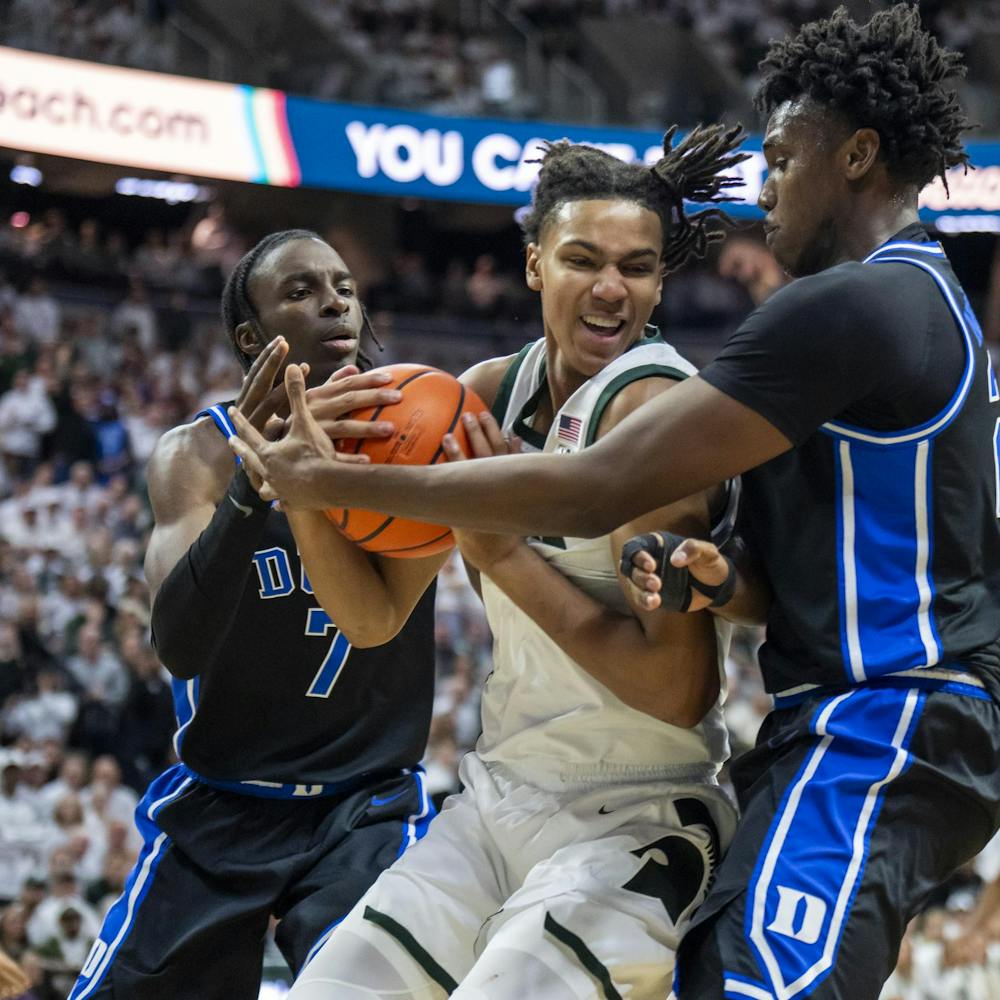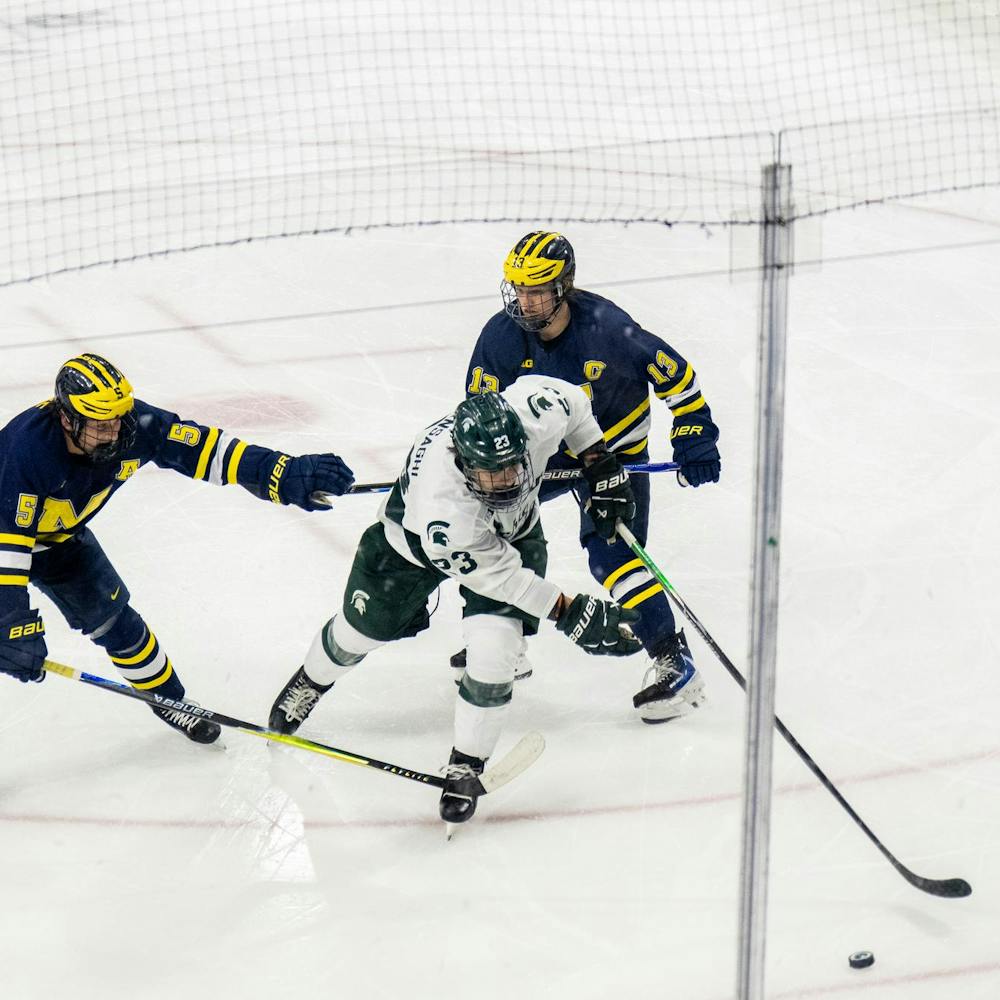It’s a good thing it didn’t rain Friday.
“I go nice and slow when it rains,” Jeannie Striedl said. “But on a good day, look out.”
Striedl beat her best time on the 1500-meter tricycle race by about two minutes.
She clocked in at 7 minutes and 33 seconds.
“Yay,” she said after she heard her time. “It’s usually around 9 (minutes). I’m happy.”
Striedl is one of about 120 athletes that competed in the 26th annual Michigan Disability Sports Alliance Victory Games, which began Thursday and ended Sunday morning on campus.
“I enjoy coming to this,” Striedl said. “I would not miss this for anything.”
Athletes competing in the Victory Games must have a physical disability to compete.
“This is for athletes with physical disabilities. The Special Olympics is for athletes with mental impairments, but we’re not that,” Victory Games director Cindy Burkhour said. “Most of these athletes have cerebral palsy, or head injury or stroke.”
Burkhour said other disabilities many of the athletes have include spina bifida and muscular dystrophy.
Athletes may come to the games with a team from their region, or independently. Striedl came from Battle Creek with her team of three athletes called the Battle Creek Bears.
The first, second and third-place winners in each event received ribbons, and the first-place winners, qualified for the national competition in Connecticut, where he or she will receive a medal. It’s possible a second or third-place winner could qualify for the national games depending on the outcome of other competitions nationwide.
Striedl has been competing for 16 years and has qualified for the national games twice.
“The first time I made it to nationals, I was totally excited,” she said.
The athletes who qualify for the national games will not be known until all of the regional competitions are completed.
“There‘s minimum-qualifying standards in order to go on to national competition, or to go on to international competition,” Burkhour said.
Burkhour became involved in the Victory Games as a volunteer because she is a therapeutic recreation specialist. She also has a daughter, Erin Burkhour, who competes.
“She was a volunteer with us in the games from the time she was 5-years-old until she was 12 and then she had a stroke, which left her paralyzed on one side, and she became an athlete with a disability,” Burkhour said. “So, I came here as a professional, I stay here as a professional and as a parent.”
Stefanie Harasta, a 19-year-old from Temperance competed in the games for the first time. Harasta competes mostly in swimming.
“I’m here to have fun,” Harasta said. “If I win medals, I win medals.”






